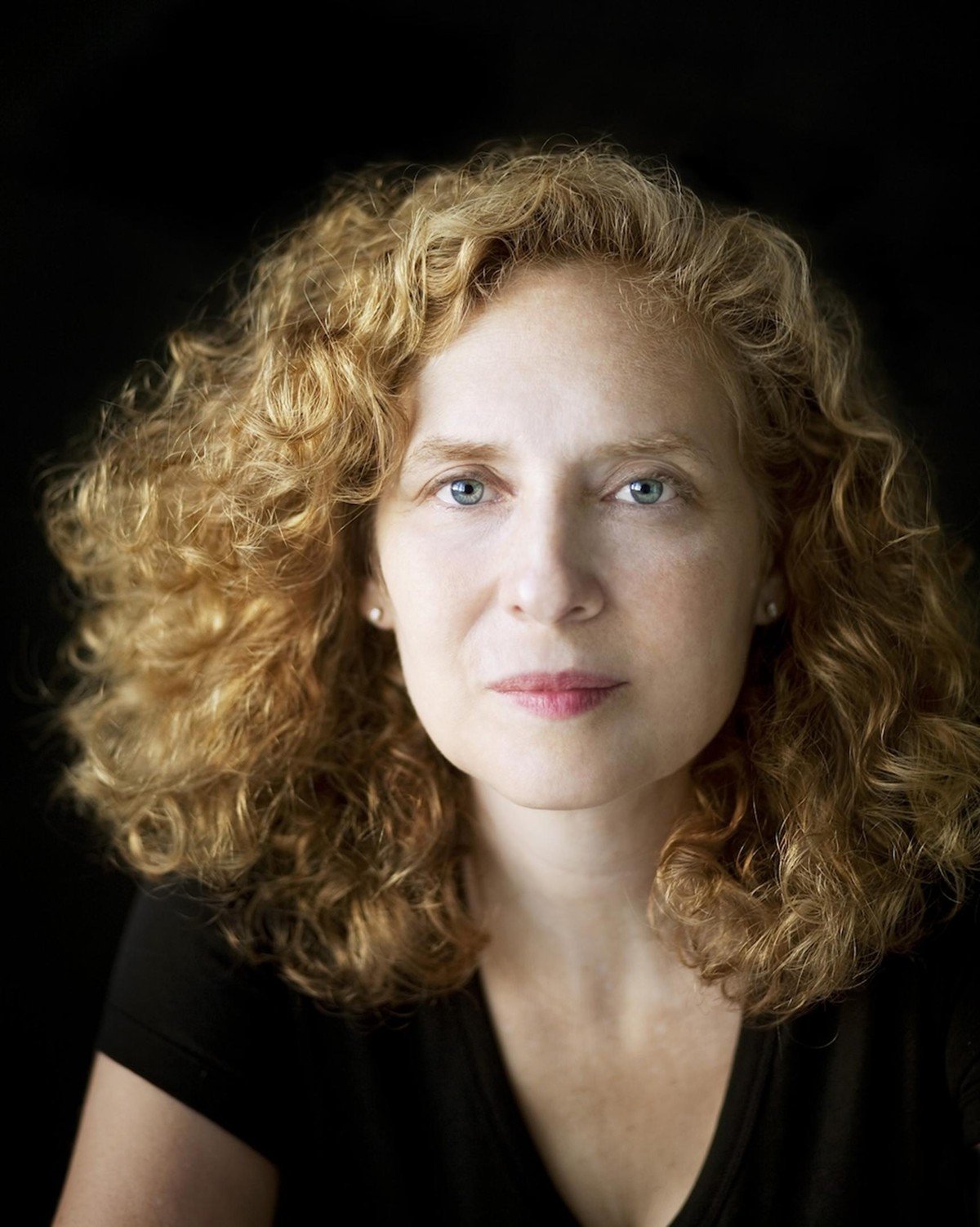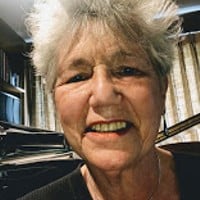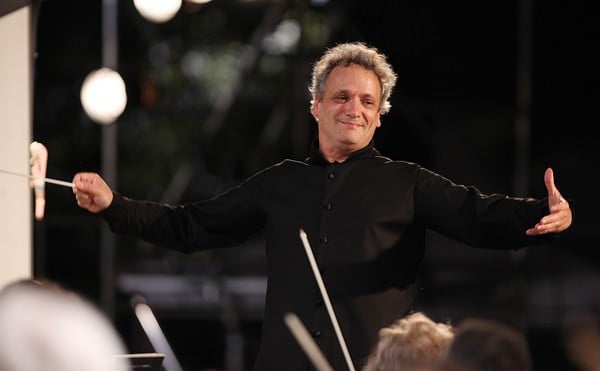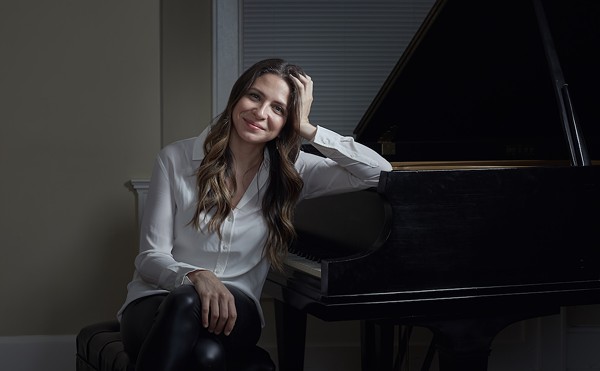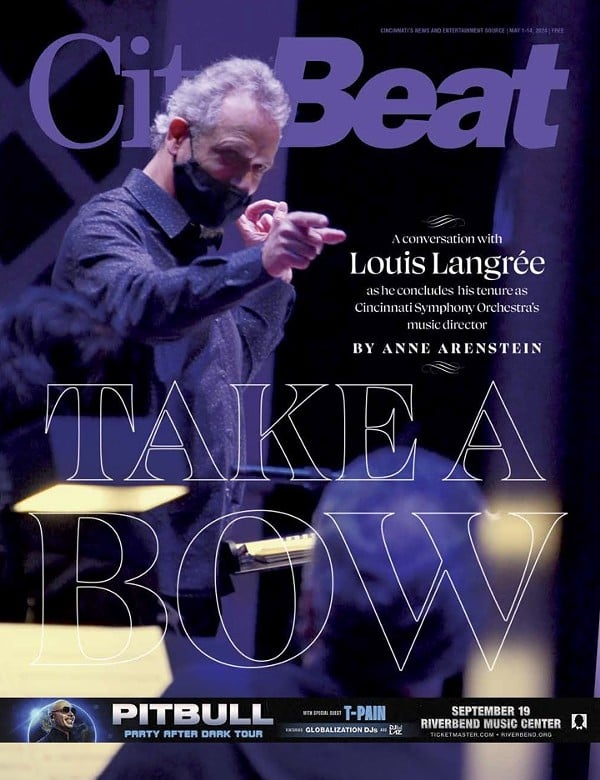The May Festival finally enters the 21st century. Today, the venerable choral festival announced its season and a new artistic model that builds on the festival’s commitment to revitalization and community engagement.
Julia Wolfe will serve as the inaugural festival director. Wolfe is an acclaimed composer with an extensive body of choral works. Her 2015 oratorio Anthracite Fields won the Pulitzer Prize for composition and has been widely performed. Her collaborations range across genres and media. With David Lang and Michael Gordon, Wolfe co-founded Bang on a Can in 1987, a festival of new music that has grown from a one-day event into dozens of initiatives, projects and performances.
“This new artistic model will build upon the legacy and success of the May Festival,” said Steven Sunderman, May Festival executive director. “We are thrilled that Julia Wolfe will join us as our first-ever festival director.”
The 2024 festival lineup begins on Friday, May 17, with director of choruses Robert Porco leading the May Festival Chorus and the Cincinnati Symphony Orchestra in Franz Joseph Hadyn’s oratorio The Creation, joined by Swedish soprano Camilla Tilling and Grammy-nominated tenor Nicholas Phan.
Franco-British conductor Stephanie Childress takes over on May 18 for a program of works by Wolfe, Lang, her long-time collaborator and fellow composer, and Ralph Vaughan Williams. The program opens with the world premiere of Wolfe’s All that breathes, a May Festival commission and Pretty, a work that draws on Wolfe’s lifelong affinity for folk and rock music and decades of musical experimentation.
The CSO string section and the May Festival Chorus will perform the U.S. premiere of Lang’s 2023 orchestral version of the national anthems. Lang compiled every national anthem to find a common element of freedom.
The concluding work is Williams’ setting of Dona Nobis Pacem.
On May 23, the May Festival’s program includes music of indigenous people for the first time. Conductor Teddy Abrams leads a program of works exploring American history and its fraught relationship with the environment. Gordon’s Natural History leads off the evening. Composed for chorus, orchestra, Native American drum ensemble and 30 spatial instruments, Natural History was created in collaboration with the Steiger Butte Singers, an extended family of singers and drummers from Chiloquin, Oregon. The texts are taken from Henry David Thoreau and the words of the indigenous people who have been the land’s stewards for millennia.
Abrams conducted the world premiere in 2016 and the Steiger Butte Singers join the May Festival Chorus. Natural History begins with shimmering evocations of water and wind and concludes with a joyous mashup of chorus, drums, singers and orchestra.
Wolfe’s five-part oratorio Anthracite Fields has its May Festival premiere. Wolfe pays tribute to the coal miners of Pennsylvania with texts describing the impact of coal mining on regional and national life. “This is a major, profound work,” wrote music critic Mark Swed in the Los Angeles Times. “The music compels without overstatement.” Bang on a Can All-Stars, a sextet that evolved from the festival of the same name, joins the orchestra and chorus.
The festival concludes on May 25 with two works conducted by François López-Ferrer. The day’s program also includes Wolfe’s oratorio Her Story, which pays tribute to the ongoing struggle for equal rights, representation and access to democracy for women in America. Texts feature letters written by Abigail Adams, words attributed to Sojourner Truth, and attacks aimed at women fighting for equality. The all-female Lorelei Ensemble will join the CSO and the May Festival Chorus. The day’s program concludes with Gabriel Faurè’s Requiem, which is among the most beloved works in choral literature. Soloists are still to be announced.
This year’s festival marks the retirement of Porco, director of choruses for the past 35 years, the longest such tenure in the festival’s history. On March 23, Porco will be honored at “Bob’s Big Sing: A May Festival Reunion,” celebrating his achievements as chorus master and conductor.
Porco’s successor is Matthew Swanson, a vibrant force in making the festival choruses more inclusive and welcoming. Swanson literally rose from the ranks, singing tenor in the chorus and serving as a May Festival Conducting Fellow in 2015.
When Swanson’s appointment was announced to the May Festival Chorus last December, he got a standing ovation.
The May Festival was founded in 1873 and is the oldest choral festival in the Western hemisphere, rooted in Cincinnati’s German heritage of choral singing. Many important works by European classical composers had their American premieres at the May Festival and the festival has an impressive history of commissioning choral works from leading composers.
This new artistic model is exactly what the May Festival needs to invigorate the city that sings with music from across the choral world. Traditional choral literature remains and innovative new works and their creators will be celebrated.
Sing Hallelujah!
Subscribe to CityBeat newsletters.
Follow us: Apple News | Google News | NewsBreak | Reddit | Instagram | Facebook | Twitter | Or sign up for our RSS Feed

